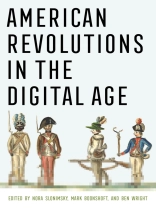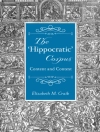The interdisciplinary essays in American Revolutions in the Digital Age explore what digital tools can tell us about the late eighteenth- and early nineteenth-century United States and reveal how an understanding of the American past can make sense of our digital present.
By employing a host of innovative digital research methods, these authors challenge long-held assumptions about the American past. In addition, this collection uniquely demonstrates how contemporary anxieties about an array of topics, including media disinformation, patriarchy, economic inequality, and public memory, can be better understood through careful considerations of early American history.
Open Access edition funded by Iona University
Содержание
Introduction: North America, the United States, and Multiple Revolutions
1. Digital Public History at Three Presidential Home Sites
2. New Media and Old Problems: Restoring Humanity in the Maryland Loyalism Project
3. Discovering Revolution in Digital Sources: Other Colonial Voices
4. Building a Relational Database to Explore Enslaved Midwives’ Work in Early America
5. Geographies of Emancipation: Geospatial Technology in Mapping Black Thought in the Age of Revolutions
6. Visualizing City-Spaces during the Age of Revolutions
7. Rethinking Enslaved Containment and Mobility in North Carolina’s 1821 Insurrectionary Scare
8. Mapping Myaamia Landownership, 1795–1846 and Today
9. (Counter-)Revolutionary Discourse in the Age of Revolutions
10. By Conversation with a Lady: Women’s Correspondence Networks in the Founders Online Database
11. Identifying ‘A Slave’: The Iona University Text Analysis Project Explores a Mystifying Letter to Thomas Jefferson
12. Who Stands in the Digital Shadows? ‘City of Refuge’ at the Intersection of ‘Old’ and ‘New’ Media in the Age of the Digital Humanities
13. Media Literacy in Revolutionary America
14. ‘A Busy, Bustling, Disputatious Tone’: News Anxietyin the Age of Revolutions and Today
15. Copyright and Historical Dangers of Licensing Regimesin the Digital Age
Об авторе
Nora Slonimsky is Associate Professor of History and Director of the Institute for Thomas Paine Studies (ITPS) at Iona University. She is the social media editor for the Journal of the Early Republic, the reviews editor for SHARP News, and the author of the forthcoming The Engine of Free Expression. Mark Boonshoft is Associate Professor and Conrad M. Hall ’65 Chair in American Constitutional History at Virginia Military Institute and author of Aristocratic Education and the Making of the American Republic.Ben Wright is Associate Professor of History at the University of Texas at Dallas. He is the author of Bonds of Salvation and coeditor of The American Yawp.Contributors: Joseph M. Adelman, Benjamin Bankhurst Dorothy Berry, Gary Berton, Christian Boylston, Lindsay M. Chervinsky, Sara Collini, Kyle K. Courtney, Michael Crowder, Christy Hyman, Lubomir Ivanov, Maeve Kane, Afshawn Lotfi, Molly Nebiolo, Marcus P. Nevius, Jessica M. Parr, Smiljana Petrovic, Brad Rittenhouse, Kyle Roberts, Cameron Shriver, Whitney Nell Stewart, and Jordan Taylor.












